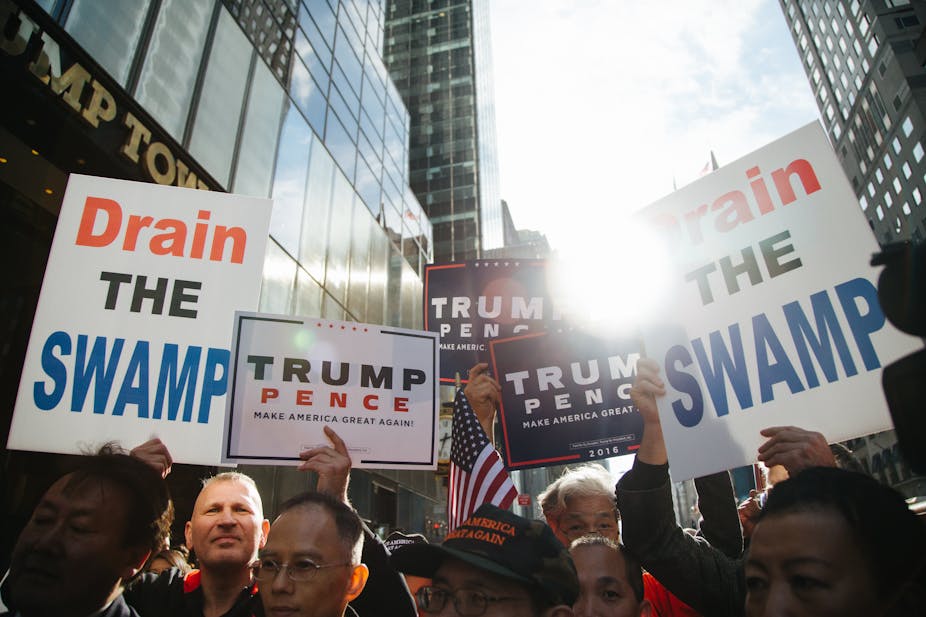Donald Trump’s victory in the US presidential election has put paid to the view that winning office takes a slick, professional campaign. In fact, the president elect ran a distinctly unprofessional campaign. Throughout the race, he seemed to stumble from gaffe to gaffe, attracting mockery and scorn. Yet he beat an opponent who has spent years planning her operation.
Trump went through numerous changes over the course of his campaign. He started with a small team, largely controlling his own message. The campaign philosophy was “Let Trump be Trump” and was geared around gaining exposure during the primaries.
As the battle heated up, Trump responded by bringing in more established consultants, adding a greater level of professionalism. Paul Manafort, a veteran of Republican presidential campaigns, joined the team in March and other leading Republican staffers followed, including Michael Glassner, Rick Wiley and Ken McKay.
But by August this team had been sidelined. Manafort was replaced at the helm by Steve Bannon and Kellyanne Conway. Bannon, a Breitbart News executive, was brought in to improve Trump’s media relations. Conway, a pollster specialising in youth and female demographics, offered a greater focus on targeting, suggesting the campaign had grasped the maths and was integrating a more strategic dimension to electioneering.
In contrast, Clinton’s team was tight and largely consistent. Most had strong ties to their candidate’s party – and probably to her personally. The only major addition was to bring in campaign manager Robby Mook in 2016 to focus on data-driven campaigning.
How we got here
Political campaigning has become increasingly professionalised as a result of two major societal developments. First, citizens have become less politically interested, unaligned from parties, cynical of campaign promises and harder to reach through a small number of media channels. Second, media outlets have become more commercially oriented and less focused on public service news. Campaigns must therefore be more strategic, targeted in their communication, and embracing of the entire media environment.

Campaigns have become centralised, with a core strategy team installed to guide the design of messages. They advise on slogans, posters and TV advertisements as well as who to target. Independent specialists are also brought in, usually from the corporate sphere. Hence political campaigns increasingly have the look and feel of the campaigns major companies run when touting consumer goods.
Trump confounds this professionalisation. His claims throughout the campaign, many of which may appeal to some American voters but lack any sense of realism (such as the idea of forcing Mexico to build a wall along the Mexican border) suggest a lack of message control. Trump talks from the gut, making promises on the hoof, aligning everything to the simple slogan that he would “Make America great again”.
It would appear the Trump phenomenon has emerged due to, rather than in spite of, his lack of professionalism. His fans remained loyal even as Republicans denounced him. His campaign lacks polish, but his statements chime with many ordinary Americans. He uses the language and makes the arguments many probably make in the privacy of their homes. He gives voice to dissatisfied Americans through his lack of polish and professionalism.
It would appear that just “being Trump” is a vote winner. His whole approach challenges the accepted perspective of what it means to be professional. Being on message and driven by consultants can be effective but voters also seem increasingly sceptical of the polished performer. They didn’t buy what Clinton was selling, even after all her efforts to hone her product.
Politicians who appear to talk from the heart win over the hearts and minds of sections of electorates. Despite countless blunders, a disunited team and an out-of-control communicator as a candidate, the Trump campaign beat all the odds. Maybe this unprofessionalism is a blueprint for a new professionalism.

